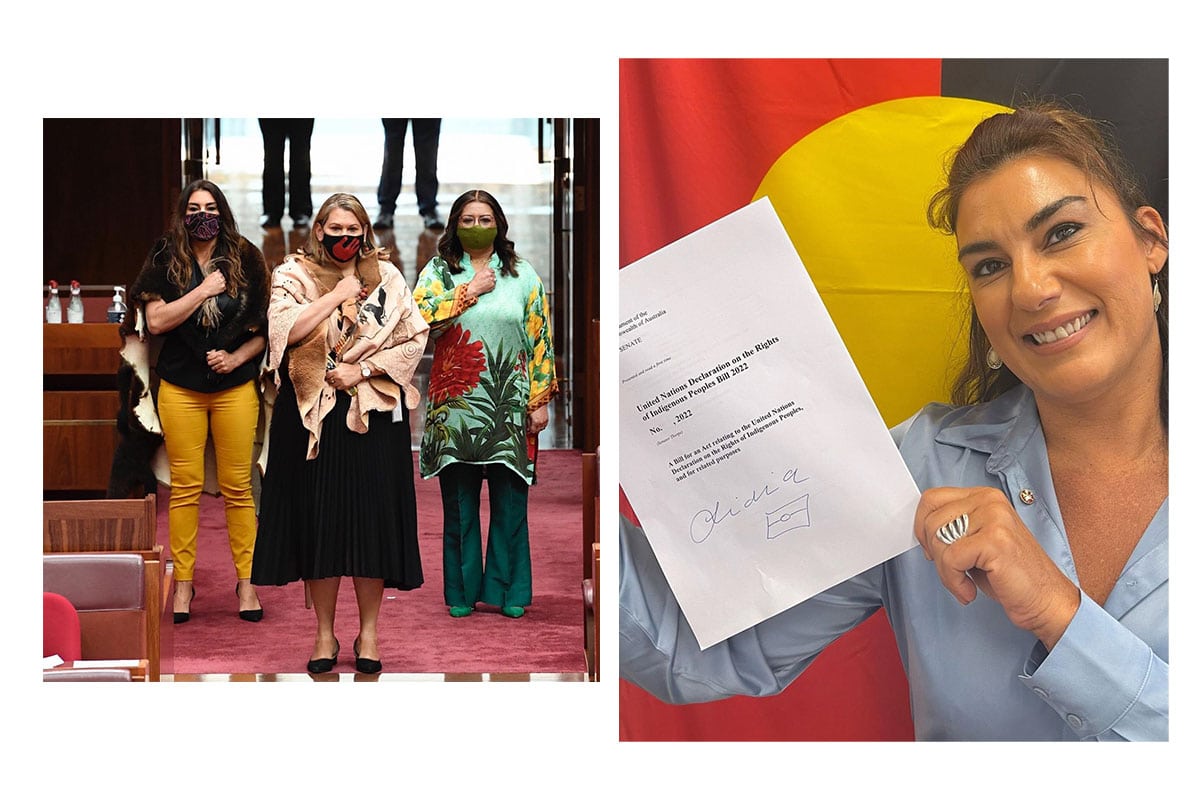
The incoming federal parliament will have a record number of First Nations folks representing a vast array of country from across Australia. Once vote counting has concluded, it appears three new First Nations peoples will join the re-elected politicians in the senate and the House of Representatives.
Who are the new First Nations peoples entering Parliament?
The new lineup of First Nations candidates entering parliament include Marion Scrymgour (Labor) in the Northern Territory seat of Lingiari, Wiradjuri man Gordon Reid (Labor) in New South Wales’ seat of Robertson and Jacinta Nampijinpa Price (Country Liberal Party) looking to secure a senate position for the Northern Territory.
In the senate, the trio are set to join re-elected Labor senators Mutthi Mutthi and Wamba Wamba woman Jana Stewart – both from Victoria – Northern Territory’s Yanyuwa woman Malarndirri McCarthy and Yarawuru elder Patrick Dodson from Western Australia. Greens Senator Yamatji-Noongar woman Dorinda Cox, of Western Australia, and DjabWurrung Gunnai Gunditjmara woman Lidia Thorpe, of Victoria, have both retained their seats. The Parliament Library also recognises Tasmanian senator Jacqui Lambie as a person who is Indigenous or has Indigenous heritage.
View this post on Instagram
Looking at the House of Representatives, Linda Burney (Labor) is speculated to become Minister for Indigenous Affairs when Prime Minister Albanese announces his full cabinet. This brings the total of First Nation people in Parliament to 10, sitting at 4.4 per cent, a significant figure considering Indigenous people make up 3.3 per cent of the national population.
It is widely expected a movement on the Voice to Parliament will occur soon, enabling Aboriginal and Torres Strait Islander voices to give advice to parliament on policies and initiatives. The Albanese Labor government has promised a referendum to amend this in the Australian constitution in the next four years. In addition to the Voice to Parliament movement, Prime Minister Albanese has also made it clear the Uluru Statement from the Heart is a priority to his government, saying in his victory speech, "together we can embrace the Uluru Statement from the Heart. We can answer its patient, gracious call for a voice enshrined in our constitution. Because all of us ought to be proud that amongst our great multicultural society we count the oldest living continuous culture in the world." First constructed in 2017 by Aboriginal elders and put forward as a petition by the First Nations National Constitutional Convention, the statement asks for supervised process of agreement-making between the government and Aboriginal and Torres Strait Islander representatives, ensuring that First Nations voices are consulted in the governing of the country.
Image: Instagram



